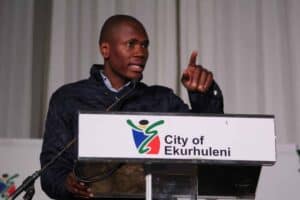Perhaps the party needs to take that criticism on board, swallow its pride and focus on the common enemy.

The local government elections last year were hailed by some as a watershed moment in South Africa’ post-Apartheid politics – because the ANC suffered such setbacks that, for the first time, its opponents could realistically contemplate ousting the ruling party.
While it is true that turnout in the local government elections was low and also that a general election might bring more voters to the aid of the ANC, the results last year were a clear signal that South Africans are getting tired of their rulers.
The prospect of the ANC losing its majority to the rest of the country’s political parties was a tasty prospect and all appeared to accept that unity was the only way to achieve that…and political unity in an anti-ANC front meant, of course, making the politics of coalitions a reality.
ALSO READ: DA’s Mpho Phalatse seeking personal cost order against City of Joburg Speaker
So far, though, it appears that the real beneficiary of the coalition governments has been the ANC – because the unity of these groupings has been fragile, to be kind.
Already Joburg has seen the Democratic Alliance (DA) lose its mayoral position to the ANC – which some of its partners in the coalition blame on DA arrogance and going back on promises.
The DA, for its part, believes it has been stabbed in the back by its erstwhile allies. Now, as we report today, the DA can expect more cutlery in the spinal area as its partners in the even more fragile Ekurhuleni coalition are predicting that matters will go the same way as Joburg, with the mayoral post being handed to the ANC.
It is difficult to determine the heroes and villains in all of this. But a disturbing common thread from the DA’s coalition partners is that it is too dictatorial. Perhaps the party needs to take that criticism on board, swallow its pride and focus on the common enemy.
Support Local Journalism
Add The Citizen as a Preferred Source on Google and follow us on Google News to see more of our trusted reporting in Google News and Top Stories.






